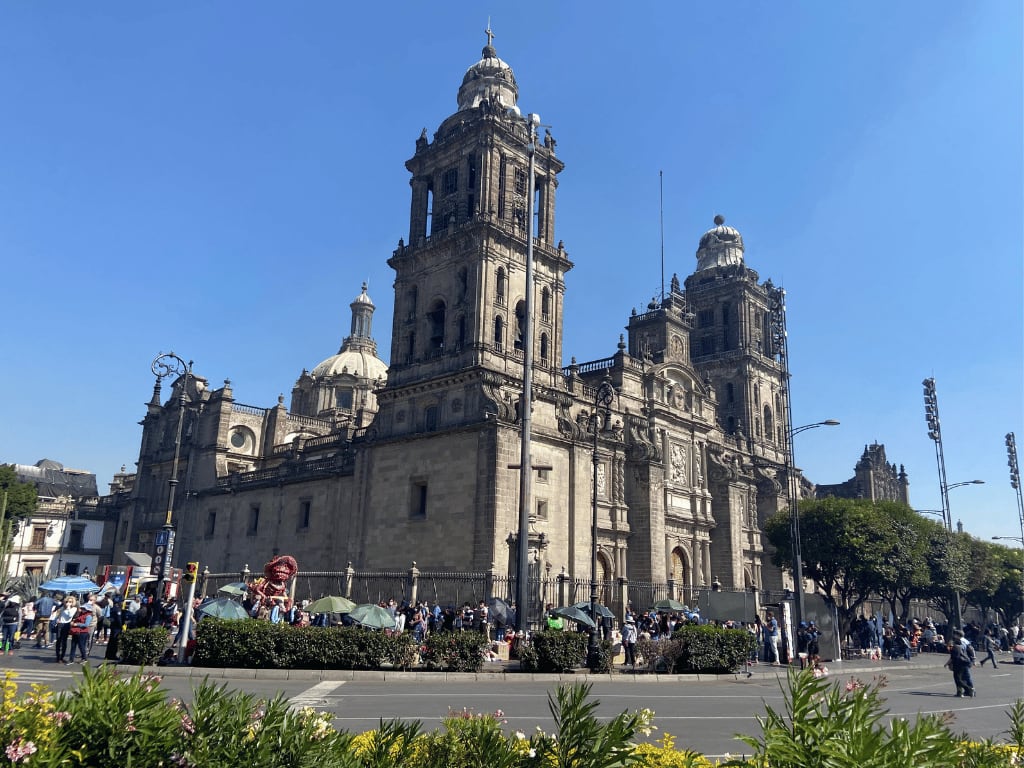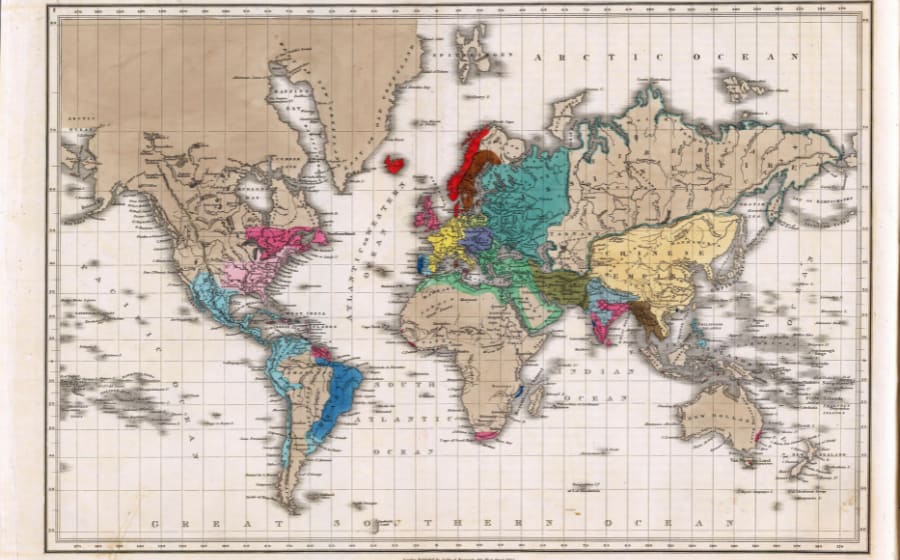Who were the Moors? Understanding their Culture, Origin and Legacy
January 19, 2023
Win a FREE Trip to Spain!
Exciting Announcement! For the first time, we're thrilled to offer exclusive trips to the heart of Spain - an experience like no other. This isn't your typical tourist journey; it's a unique opportunity to immerse yourself in authentic Spanish culture, alongside real locals and our passionate team.
But there's more! Simply by requesting information about this amazing trip, you'll be entered into a special draw to win a Fully Paid Trip to Spain for Two. And that's not all - everyone who inquires will receive an exclusive bonus gift, valued at $500, available only now.
Ready to Discover the Real Spain?Click Here ↑ to Request Information & Enter the Draw!
No, but seriously, who were the Moors? I’ve heard this term before, but I need help understanding what ethnicity it refers to!
Calm down. I’ll get this clear for you! Many people have the same confusion, mainly because “Moor” does not refer to any ethnicity or race. (or at least not officially)
In this article, I’ll explain who the Moors were, the origin of this name, where they came from, and what they have done. Also, I will give you the modern Meaning of the term and which connotations it might have depending on the conversation and who’s talking.
Let’s begin with an easy-peasy definition before we get deep into the topic.
Table of Contents ▼ ▶
Who were the Moors?
The Moors included populations of Berber origin (which have nothing to do with Arabs) and Phoenician and Greek settlers. Mauretania was one of the most Romanized regions of the empire.
Where does the name Moor come from?
The word “Moor” (“Moro” in Spanish) comes from the Latin word “Maurus.” This term was initially used to refer to the population of North Africa, specifically to an area known by the Romans as Mauretania. This were the Berbers, but not the Arab population since they arrived centuries later in North Africa.
Over time, the term was applied to all Muslims living in Europe.

But why is this?
In 711 AD, a group of North African Muslims led by the Berber general, Tariq ibn-Ziyad, conquered part of the Iberian Peninsula (the current territories of Spain and Portugal), and their land was known as al-Andalus.
Over time, the Muslim state weakened, and Christian groups slowly expanded their territory.
This “Muslim Spain” period ended when Ferdinand II and Isabella I, the Catholic Kings, won the War of Granada in 1492. And finally, the Moors were expelled from Spain.
The region invaded by Muslims and Islam religion became a thriving cultural and economic center where education, arts, and sciences flourished. You can learn more about Muslim Spain and Spain’s history timeline in the following articles:
Spain’s History Timeline: Key Events and Most Important Dates
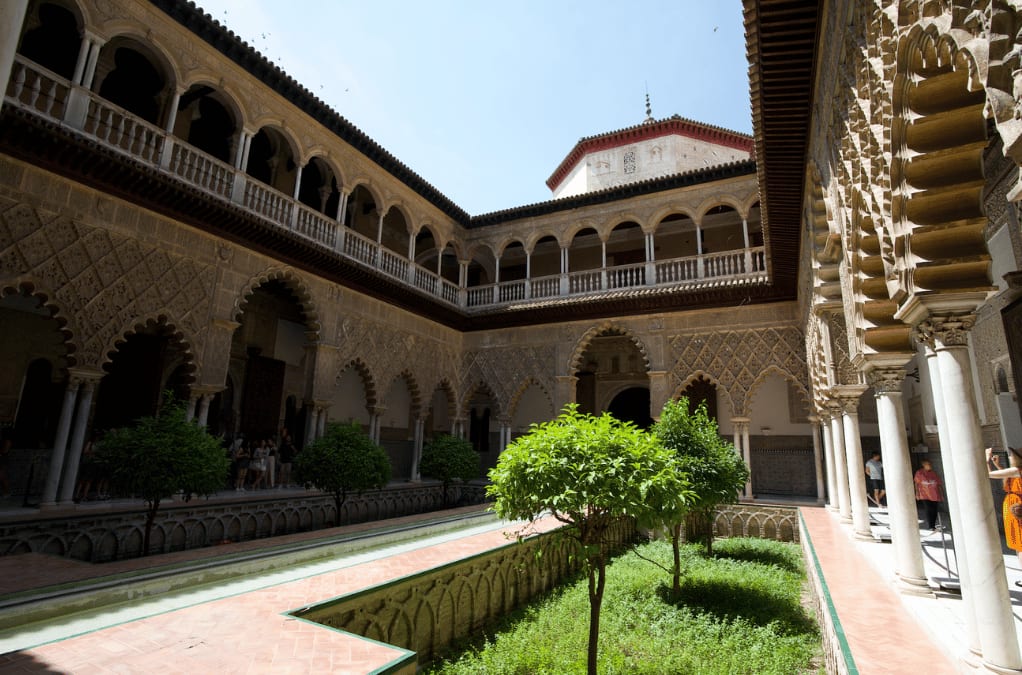
By then, the idea of the Moors had spread throughout Western Europe. The word “Moor” refers to any Muslim or dark-skinned person.
More specifically, the term has been used to describe the reign of Muslims in Spain and Europeans of African descent in an alternative way. This is enough explanation of the term, right?
Although there are some distinctions between “black Moors” and “white Moors.” Centuries later, during the Renaissance, the words “Moor” and “blackamoor” were also used to describe anyone with dark skin.
If you’re wondering, this term is repeatedly found in literature, art, and history books. However, it does not define a specific ethnicity or race. So, it is incorrect to describe a particular ethnic group with it.
Are Muslims and Moors the same?
Muslims and Moors are not the same. The word “Moor” does not define a specific ethnicity or race, as I explained earlier. Here’s the difference between Arabs, Muslims, Moors, and Islamists:
- Arabic is a language, and this term also describes the culture that develops in that language. Additionally, those natives from Arabia who spread to other parts of Asia and Africa until reaching Spain are also called Arabs.
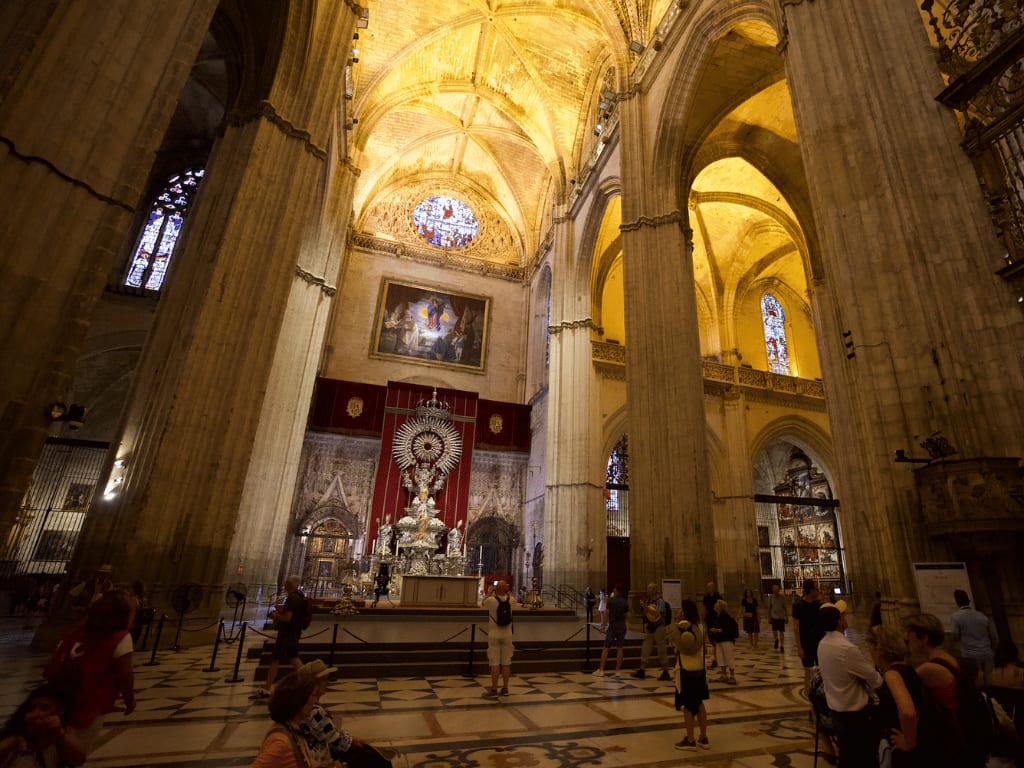
- Muslims are followers of Islam, and many Muslims are neither Arabs nor Moors. For example, we can also find Islam followers in Indonesia, China, Kosovo, Albania, and central and southern Africa.
- Islamists are Muslims who advocate the application of Islamic law in political life.
- The term “Moor” or “Moorish” is used to describe the Greater Maghreb inhabitants: Libya, Tunisia, Algeria, Morocco, Western Sahara, and Mauritania.
Modern Meaning of the word Moor
In today’s world, colloquially, the word Moor can have 2 meanings:
- A native of the Maghreb.
- Any Muslim, usually in a derogatory tone.
The word “Moro” sounds derogatory in Spanish in Spain, depending on both the sender and the receiver. In a conversation, according to the case, you can change this word to Maghrebian, Moroccan, Algerian, or Tunisian.
These alternatives sound way better and don’t have the “negative” connotation it has, taking into account that the “Moors” were taken out of the Iberian Peninsula by force.
And, in case you didn’t know, Spain is so close to Africa that we can even see Gibraltar from Spain!!
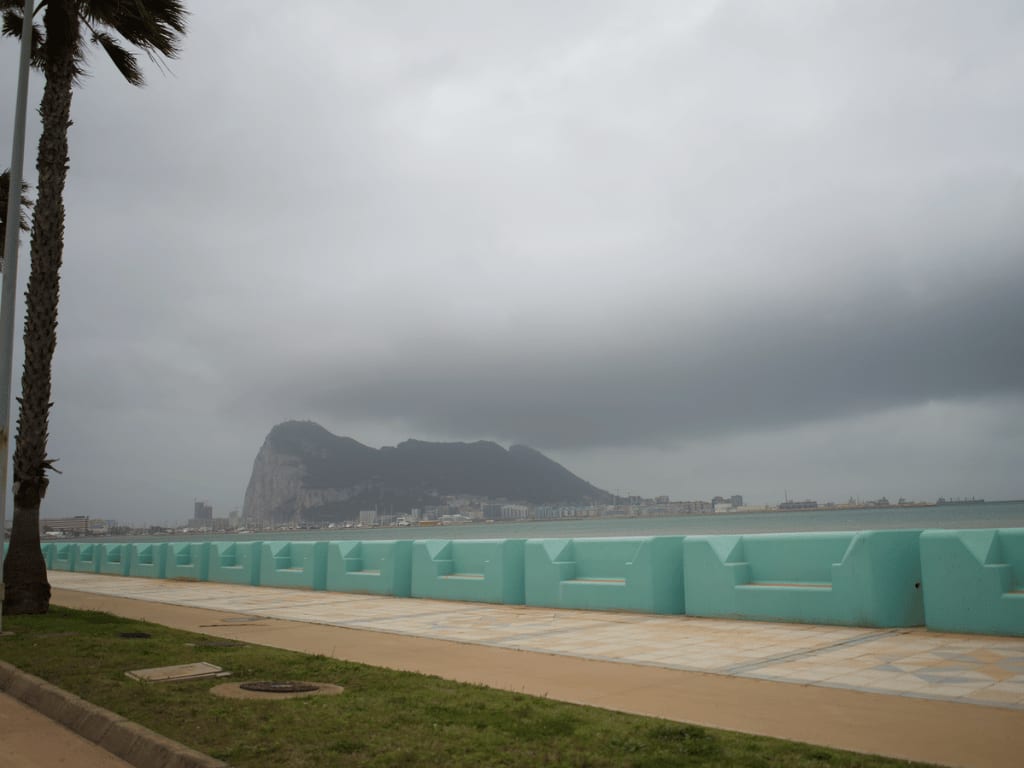
Who are the descendants of the Moors?
According to the Roman historian Sallust, the Moors formed part of Hercules’ army on his journey to the western end of the Mediterranean, along with Persians, Armenians, and Medes.
After this mythological origin, they would have mixed with the local populations of Getulia (Zenates, a Berber group of today’s Maghreb), settling in the mountains of Morocco, the Algerian Aurès, and Libya.
The term Moors is also used by the Byzantine historian Procopius of Caesarea and by the Roman-African St. Augustine. They were talking about the non-Romanized population of Aurès and other indigenous that rebelled against Rome.
Later in the 5th century, the Vandals and Alans crossed the Strait of Gibraltar after they were expelled by the Visigoths from Hispania. Later, they built a Vandal kingdom in Africa around 431.
The Moors collaborated in their pirating expeditions against Rome in 455 and even got Roman prisoners into slavery. Later, Justinian I brought them back under imperial authority in 533.
They kept expanding and reached the Iberian Peninsula in the 8th century. This way, the Moors, specifically the Berbers, were part of a small force that conquered the peninsula in only 9 years.

Also, we have the Moors of the Philippines. These are people who profess the Muslim religion and have mixed ancestry, resulting in a crossbreeding between Malays, Arabs, Chinese, and, to a lower extent, Hispanics.
Spaniards began to call them “Moors” since it was already the name used to designate the Muslims of North Africa since the 16th century.
The Phillipine Moors and Spain
But wait, what about the Philippine moors?
Well, between 1574 and 1896, considering the global context of colonization, wars, and conquests, Spain also wanted to conquer many lands as was expected.
So, ordinary Spaniards wanted to leave the peninsula to look for a better place, and they went for the Philippines. But why there? If they could go to places like Mexico, Peru, or other Hispanic American countries since they are more convenient areas to make a living and live comfortably?
Spaniards who went to the Phillippines were not the best of Spanish society. Many were forced to go and didn’t have other options.
It was a complete cultural shock when they first arrived in the Philippines. Not because they were Muslims (which was just “the cherry on top” for this established Spanish society) but because Moors lived under slavery circumstances and enslaved the Spanish that went there. And, if a Spaniard captured one of them, the Moors had to kill them.
Moors in the Philippines are said to be one of the worst enemies Spain had ever fought against.
However, before we judge, I would like to cite one of the most influential Spanish historians, Julio Albi de la Cuesta. He gives his point of view on how we should judge these past historical events:
“Moors in the Philippines are said to be one of the worst enemies Spain had ever fought against. However, before we judge, I would like to cite one of the most influential historians, Julio Albi de la Cuesta. He gives his point of view on how we should judge these past historical events.
I try to avoid the unfortunate temptation of applying the view of the present to the past. If one looks from the current prism, the vision of the facts is distorted. It is necessary to study, write and not judge with present criteria.
It is a matter of clearing the values and personal principles that we have now. The point of view of the Moors was logical, just like that of the Romans. The Moors did not like to work in the fields; they did not like to dive deep, something that burst the lungs, and they needed crews for their ships. For them, the rational thing was to capture men to survive.
I consider it a huge mistake to apply today’s mentality to them and think that they were a bunch of murderers.
Of course, we do not agree with that in 2022. But these people did not live in 2022. That was natural in their times, especially within the global context of slavery.”
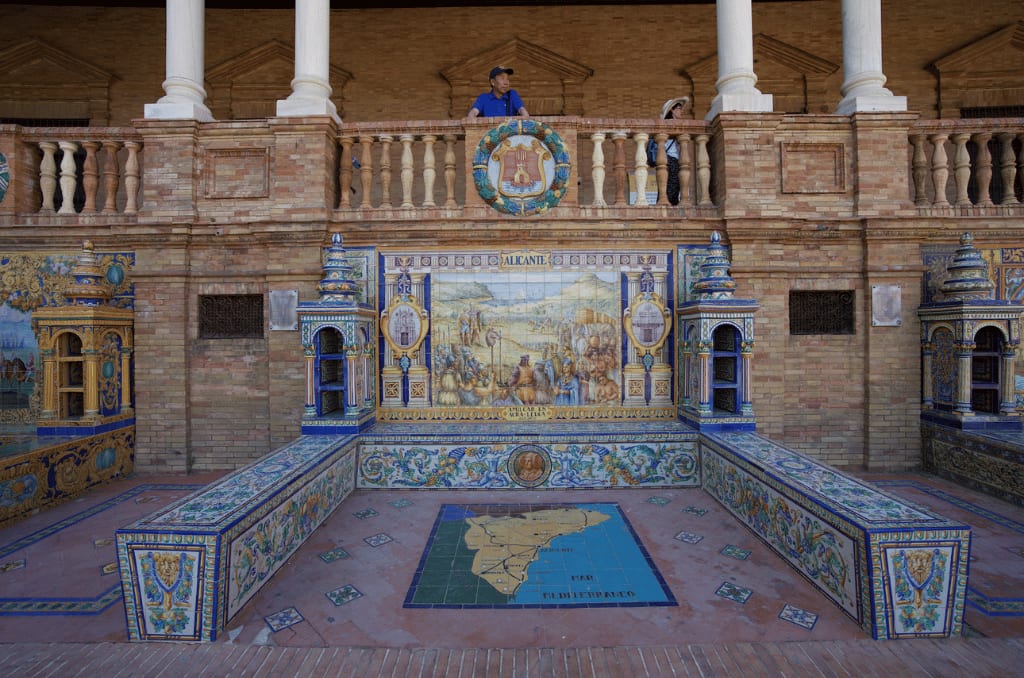
This culture has been prevalent in Spain, and the influence results in a beautiful mix of culture and traditions. Which are still evident in most Southern Spain cities. Find out everything about them in the following articles:
Lovely Southern Spain Cities to Add to your Bucketlist!
The Spanish Architecture and the 21 Wonderful Mediterranean Buildings
Thank you for reading our article and I hope I didn’t scare you a lot with our exciting and not-so-ordinary past! Let me know your thoughts in the comments, our team will be very happy to read you!



